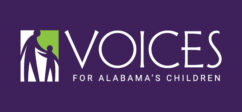Alabama’s overall child well-being ranking dropped to 43rd compared to 39th last year, according to the Annie E. Casey Foundation’s 2025 KIDS COUNT® Data Book. Alabama’s rankings declined in three domains—Economic Well-being, Education, and Health—and remained unchanged in the Family and Community domain, where the state saw the most improvement. It improved in six indicators, declined in five and remained the same in five.
The Data Book uses 16 indicators, with data from 2019 and 2023, and ranks each state across four domains. This year’s national trends paint a complex picture. There’s steady progress in some areas, such as a decreasing teen birth rate and higher high school graduation rates. But more teens are disconnected from school and work, and academic performance has declined, with nearly three-quarters of students not proficient in basic skills.
Alabama saw its own intricate mix of outcomes. In 2023, 29% of children in Alabama lived in homes where no parent had full-time, year-round work—an improvement from 31% in 2019. However, more families struggled with housing costs, with a 4% increase in those spending over 30% of their income on housing. Affordable and stable housing is essential for children’s health, school success, and community involvement.
At the same time, the number of uninsured children in Alabama grew by 33% since 2019, partly due to the end of pandemic-related coverage and the state’s refusal to expand Medicaid. Health insurance helps children get timely care and improves outcomes, especially when both kids and parents are covered.
There was a small 1% drop in babies born with low birth weight from 2019 to 2023, but Alabama still ranks 48th in the U.S., showing ongoing challenges in maternal and infant health. More investment in this area is urgently needed.
Now in its 36th year, the KIDS COUNT® Data Book continues to deliver reliable data that highlights where progress is being made for children—and where urgent action is still needed. VOICES urges Alabama’s lawmakers and public officials to use this comprehensive resource to come together across party lines and champion policies that invest in the state’s young people. By offering clear, actionable insights, the Data Book empowers policymakers, advocates, and communities to make informed decisions that help children, youth, and families thrive.

